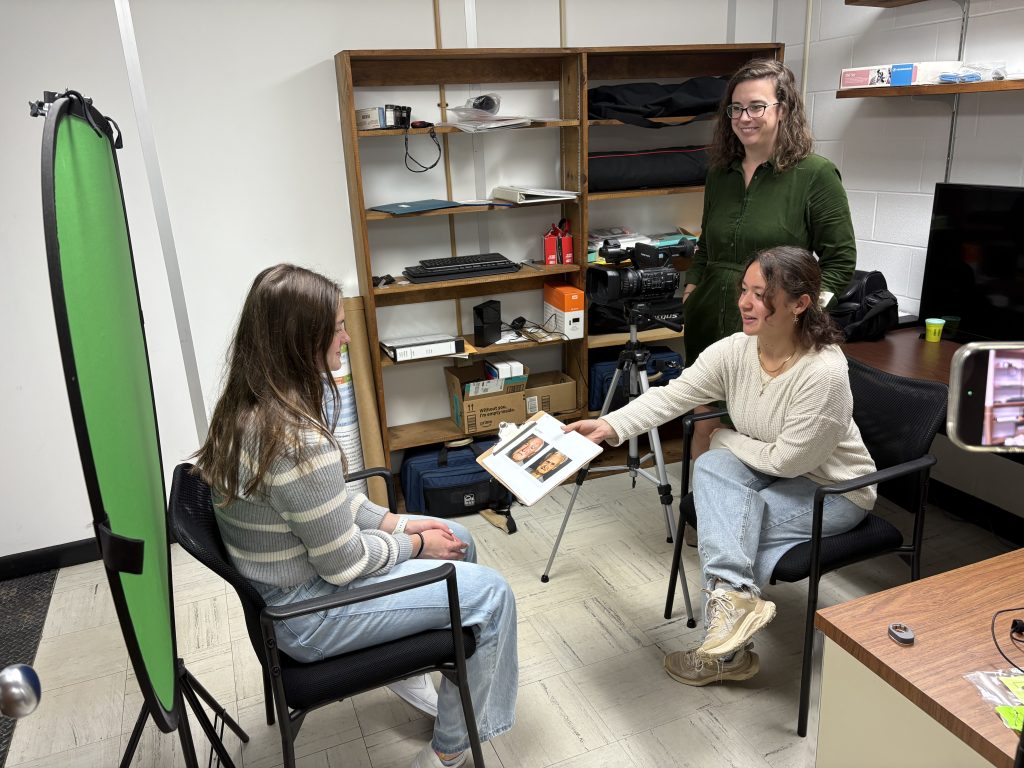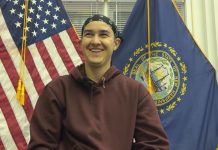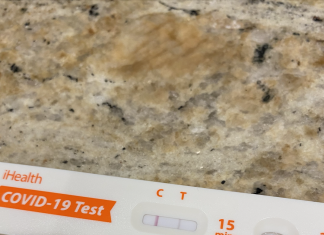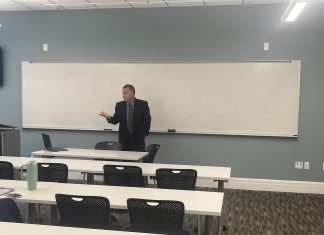NEC’s Dr. Sarah Gunnery received NEC’s first National Institutes of Health grant to help fund Parkinson’s disease research.
Gunnery is an Associate Professor of Psychology and Community Mental Health. During her undergraduate years, she gained an appreciation for the research process. She then went to graduate school to study physiology and did work on the Duchenne smile. Now, she’s expanding on that experience and teaching students how to research in a lab in NEC’s Austin and Betty Ann Kovacs Science Center.
Dr. Gunnery will use the $500,000 grant to work in collaboration with Dr. Harlan Fichtenholtz at Keene State College.
“That allows us to employ student workers, allows us to compensate participants for the time they spent participating, and it pays for all our research supplies. It also pays summer salaries for myself and Dr. Harlan Fichtenholtz and allows us to have a reduction in our teaching so we can spend a little more time on research,” Gunnery said.
The lab allows Gunnery and her students to study facial expressivity in Parkinson’s patients. Facial masking is a common symptom of Parkinson’s disease that reduces facial movements such as smiling or frowning, Gunnery said. It can impact how patients with Parkinson’s can experience communication issues and can have a negative impact on their quality of life.

Alexis Hornsby, a junior studying neuroscience has been working closely with Gunnery.
“It’s super interesting to see the difference in the way that patients respond to the questions and we ask them to do posing and copying scenarios and how the would act, and what faces they would make. The people who have Parkinson’s you can tell are trying to make the face but have a struggle with it so it’s super interesting to see them versus the control,” Hornsby said.
Gunnery said she really enjoys working with people who have have been impacted by the disease.
“Parkinson’s patients, generally speaking, are really generous with their time to volunteer, and to participate in research. We’re not working on any kind of medications that are going to cure Parkinson’s. We’re studying facial expressivity, which from day to day we’re hoping that will make a difference in improving quality of life. But they’re not leaving my lab with a new medication that might help their symptoms, so the fact that they’re willing to give their time to help us with our work is really great; it means a lot,” Gunnery said.

“It’s important for researchers to study this disease because Parkinson’s is the second most prominent neurodegenerative disease in aging Americans, as people are getting older and living longer, more people are going to experience Parkinson’s, and it can have a debilitating effect on quality of life,” Gunnery said. “Trying to find ways that we can help people with Parkinson’s to maintain their quality of life while living with the disease is important.”
















